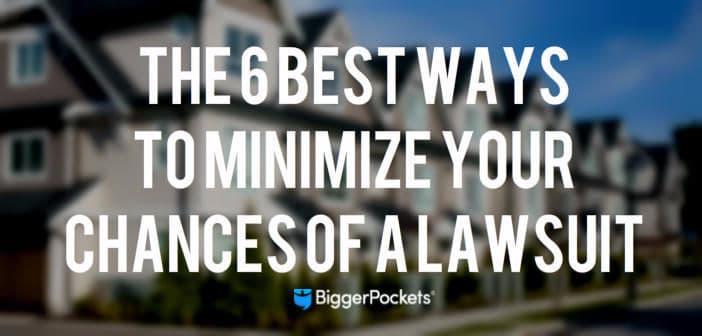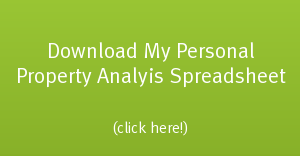
(The following is an excerpt from the new book from BiggerPockets, The Book on Managing Rental Properties. If you are looking to earn more and have less stress with your rentals, pick up a copy today!)
In our litigious age, it’s impossible to keep yourself 100 percent free from a lawsuit.
As a landlord, the chance of getting sued actually increases. However, there are some actions you can take to decrease your chance of being hit with a lawsuit.
This post is not designed to scare you, but lawsuits are a real thing, hence the need for great insurance on your property. But besides insurance, let’s talk about six of the easiest ways to keep yourself free from lawsuits ever happening.
1. Provide Housing That is Habitable
As a landlord, it is your legal responsibility to provide housing that meets a certain level of cleanliness. If you rent properties that don’t meet basic standards, your risk of getting sued increases greatly. So don’t be a slumlord! Fix up your properties and make sure they are in good, livable condition for the tenant. Be sure to investigate and comply with federal, state, and local housing codes to ensure your property is in good enough condition to rent.
Related: 7 Tips to Keep Landlords Free From Costly Tenant Lawsuits
2. Provide Housing That is Reasonably Safe
If you fail to provide a reasonable level of security for your tenants, you could be sued. For example, if a tenant calls with complaints about their door lock not working, and before you can fix the problem someone breaks in and attacks the tenant, you could face a lawsuit. Therefore, make sure safety-related concerns are addressed promptly. And, of course, don’t rent to people who might hurt other people.
3. Get Repairs Taken Care of Quickly
If a tenant has an issue that must be fixed and you refuse to, you are opening yourself up to a lawsuit or at minimum the tenant legally being able to withhold the rent or using their own money to pay for the repairs. So don’t let things get to this point. Hire qualified people to repair your properties immediately.
(click to continue reading on BiggerPockets)
P.S. looking for hard money loans in California? Be sure to check out my friends over at northcoastfinancialinc.com. They have very competitive rates, can fund within a week and specialize in fix and flip loans and other hard money loans.


 If this is your first time here at Real Estate In Your Twenties.com - welcome!
If this is your first time here at Real Estate In Your Twenties.com - welcome! 





